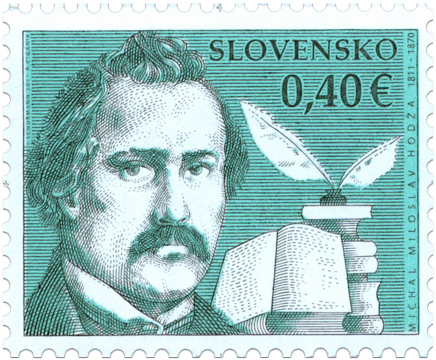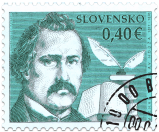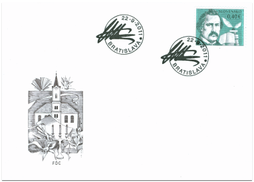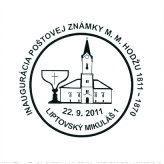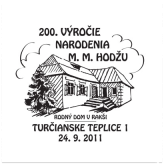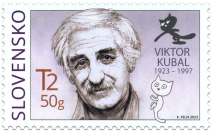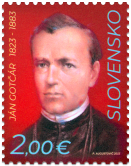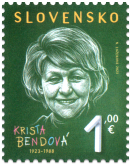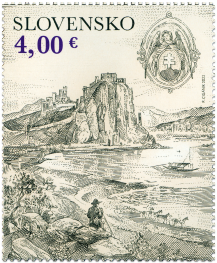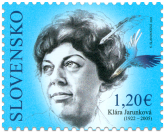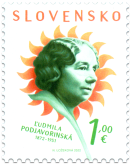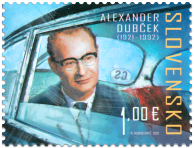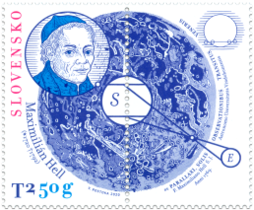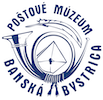504 Date of issue
22.09.2011 Face value
0.40 € Sell price
0.40 €
Michal Miloslav Hodža was one of the leading personalities of Slovak cultural and political life in the 1830’s – 1860’s. He was born on 22nd September 1811 in the village of Rakša in central Slovakia. He studied at the Evangelical Seminary in Prešov and later in Bratislava. In 1837 he finished his studies of theology in Vienna and was ordained a Lutheran priest. He spent most of his life as a pastor in Liptovský Mikuláš.
During his studies in Bratislava in the 1830’s , he became close with Ľudovít Štúr, the leading person of the rising generation of Slovak national activists as well as Joseph M. Hurban who shared the same opinions. Along with them, he brought about a new codification of the Slovak literary language in 1843, which has lasted with minor modifications until the present time. Hodža also participated in establishing Tatrín (1844), the first nationwide cultural association as well as in issuing the first Slovak political newspaper (1845). He was one of the leaders of the Slovak revolution in 1848 – 1849, in which he represented the moderate wing. In May 1848 the National Assembly gathered at his parsonage, which formulated the first national political agenda (Demands of the Slovak People). He was a leading member of the Slovak National Council, based also on his own initiative in September 1848 and one of the leaders of the military uprising for Slovak national rights. After the revolution he worked as a notary for some time devoting himself to cultural, linguistic, theological and political activities. He also participated in the creation of a new national program (Memorandum of the Slovak Nation, 1861), was a founding member of Matica Slovenská as well as a member of its Committee (1863 – 1867). In 1867 after a conflict with the authorities he emigrated to Těšín in Silesia, where after a short illness he died on 26th March 1870. He is buried in Liptovský Mikuláš.
The main motif of the post stamp is Hodža’s portrait with a background in which there are books and pens, symbolizing his merit in codification of the Slovak literary language. FDC’s motif is a collage of the church where he worked and where, thanks to his initiative, a number of major national gatherings took place along with other items that symbolize his contribution to the development of the nation, its culture and the Slovak Lutheran Church. On the FDC Cancellation there is a facsimile of Hodža’s signature.
Anton Hrnko
© 2025 POFIS - Postal philatelic service. All rights reserved

